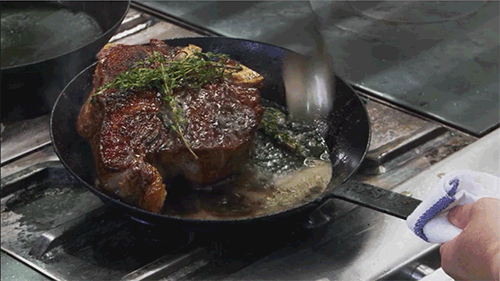Kansas State University

Meat lovers may find it appealing to take a fresh steak from the store right to their home grill, but research continues to show that freezing the steak and cooking it later actually improves the tenderness of certain cuts.
Kansas State University meat scientists say they've confirmed
previous findings about the impact of freezing strip loin and inside round
steaks.
In a recent study, they tested six major muscles from the hind quarter
and found that those two cuts were as much as 10 percent more tender after
freezing.
Steaks were evaluated for tenderness using the Warner-Bratzler Shear Force test, which measures the force needed to shear muscles.
"So the question we had was why did these two cuts react
while the other four did not," said John Unruh, professor of animal
sciences and industry.
Part of the answer, he noted, is moisture loss. "These two
muscles, for some reason, did not lose as much moisture during freezing as the
other four," Unruh said.
Unruh and a team of graduate students also evaluated 125 paired
strip loin steaks available in a retail setting. The steaks were frozen, thawed
and evaluated for tenderness.
"The strip loin steaks showed a 6 percent improvement in
the Warner-Bratzler Shear Force test, indicating a more tender steak,"
Unruh said. "Moisture loss did occur, but it was low, about 2
percent."
Freezing does, indeed, improve the tenderness of beef strip loin
steaks, Unruh said.
In a related study, the scientists tested the tenderness of
strip loin steaks being sold in retail grocery stores.
"We monitored the differences in these steaks at different
times of the year and different quality grades, including Premium Choice,
Choice and Select,"
Unruh said. "A higher percentage of the steaks in
the higher quality category, Premium Choice, met Warner-Bratzler shear
thresholds for tender or very tender."
Lower quality cuts were more likely to fluctuate in tenderness
throughout the year, he said.
Unruh and his students will present their findings at the Kansas
State University Cattleman's Day, which will take place March 4 in Manhattan.